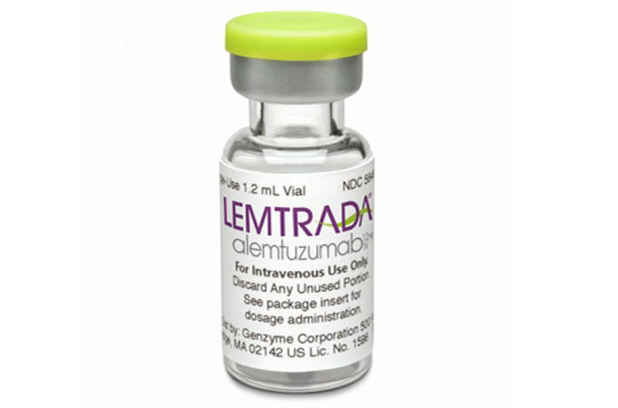Canadian Drug Expert Committee Recommends MS Therapy LEMTRADA For Public Coverage
Written by |

The Canadian Drug Expert Committee (CDEC) recently recommended that LEMTRADA (alemtuzumab) be included in provincial and other public drug plans for the management of adult patients with relapsing-remitting multiple sclerosis (RRMS). The recommendation was made through Canada’s Common Drug Review (CDR) and announced in a press release by the company that produces the treatment, Genzyme Canada.
According to the recommendation, patients eligible to receive LEMTRADA through participating provincial and other public drug plans are adults diagnosed with RRMS and active disease defined by clinical and imaging features, and who have had an inadequate response to interferon beta or other disease-modifying therapies. The CDEC’s decision follows that of the Institut national d’excellence en santé et en services social (INESSS) in Québec, Canada, which already covers the drug as second-line treatment for MS.
“We are pleased that Canadians with relapsing-remitting MS, who have had an inadequate response to other therapies, are one step closer to benefiting from an innovative new option to manage their disease,” said Sylvia Leonard, National Vice President, Talent, Programs and Services, MS Society of Canada. “Access to new treatments is critical, and so we encourage provincial governments to remain responsive in their coverage based on this recommendation.”
“While LEMTRADA is already covered by many private insurers and the Quebec public formulary, this decision will help the remaining provincial drug plans provide this innovative medication that has the potential to transform the course of disease,” added the CEO of Genzyme Canada, Peter Brenders. “Genzyme continues to work with each province and territory to ensure that eligible Canadians who rely on provincial drug plans will have swift access to LEMTRADA.”
The CDEC decision was based on Health Canada indications as well as results from the phase III CARE MS II study conducted by Genzyme to evaluate LEMTRADA, a recombinant humanized monoclonal antibody. The clinical trial revealed that the treatment is more effective as a second-line treatment than interferon beta-1a in decreasing the annual relapse rates and onset times of sustained accumulation of disability.
LEMTRADA features a novel mechanism of action and was developed to complement a series of therapies for patients with RRMS. The treatment consists of two rounds of therapy per year, the first one being administered over five days in the first year and the second over three days in the second year. Since patients need regular monitoring between therapeutic courses and for 48 months after the end of the treatment, Genzyme created a free, comprehensive “MS One to One” patient support program.
The treatment had already been approved in Canada in December 2013, representing a new hope for patients with RRMS. “The approval of LEMTRADA represents a novel and important new treatment option for Canadians living with MS,” stated Dr. Anthony Traboulsee, Associate Professor of Neurology and Medical Director of the UBC Hospital MS Clinic of Vancouver Coastal Health.
“Our own experience in treating 35 patients through clinical trials with LEMTRADA has been extremely positive. LEMTRADA demonstrated impressive effectiveness after only two treatment courses, and the benefits remained for several years after completing the treatment. We have not seen this type of prolonged remission before without ongoing treatment,” added Dr. Traboulsee.
In the United States, the Food and Drug Administration (FDA) approved LEMTRADA for patients with RRMS in 2014, after a series of setbacks. While the drug had already been approved in Canada, Scotland and Argentina, the medical community and U.S. patients started questioned whether the therapy would be authorized in the United States. However, after resubmitting an application for the drug in June, LEMTRADA was approved by the FDA in November. This current news adds to its increased acceptance as a viable RRMS therapy.


